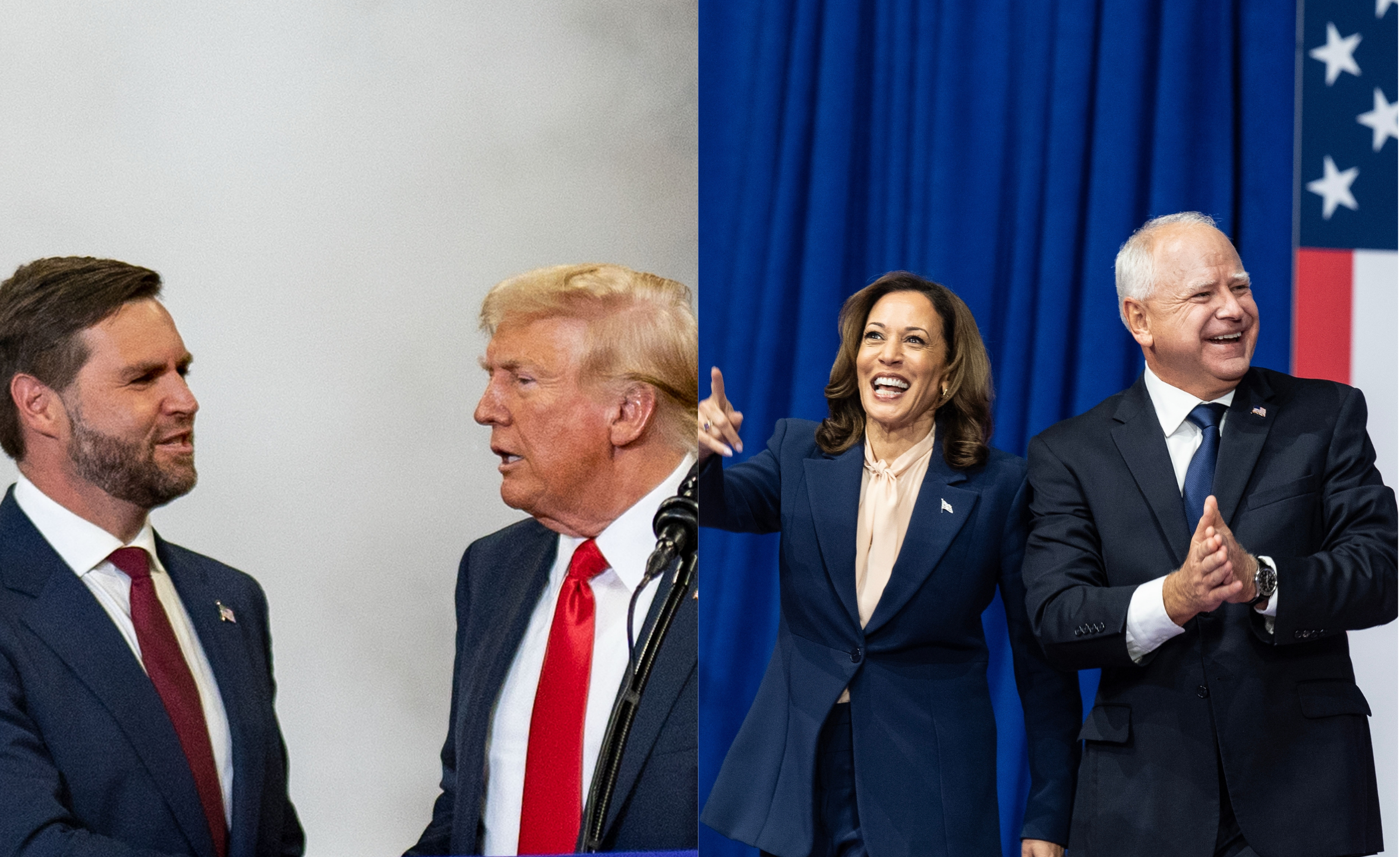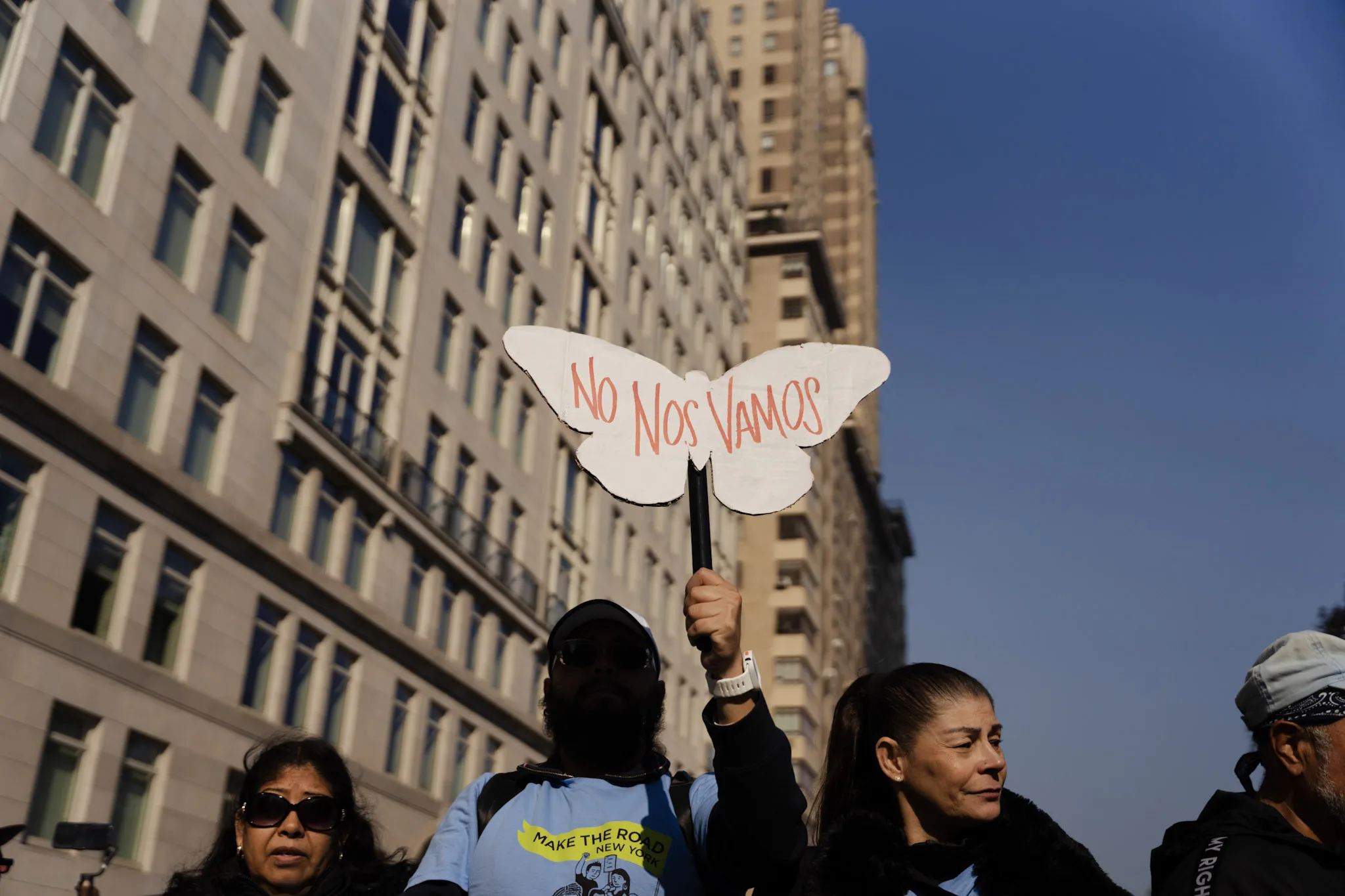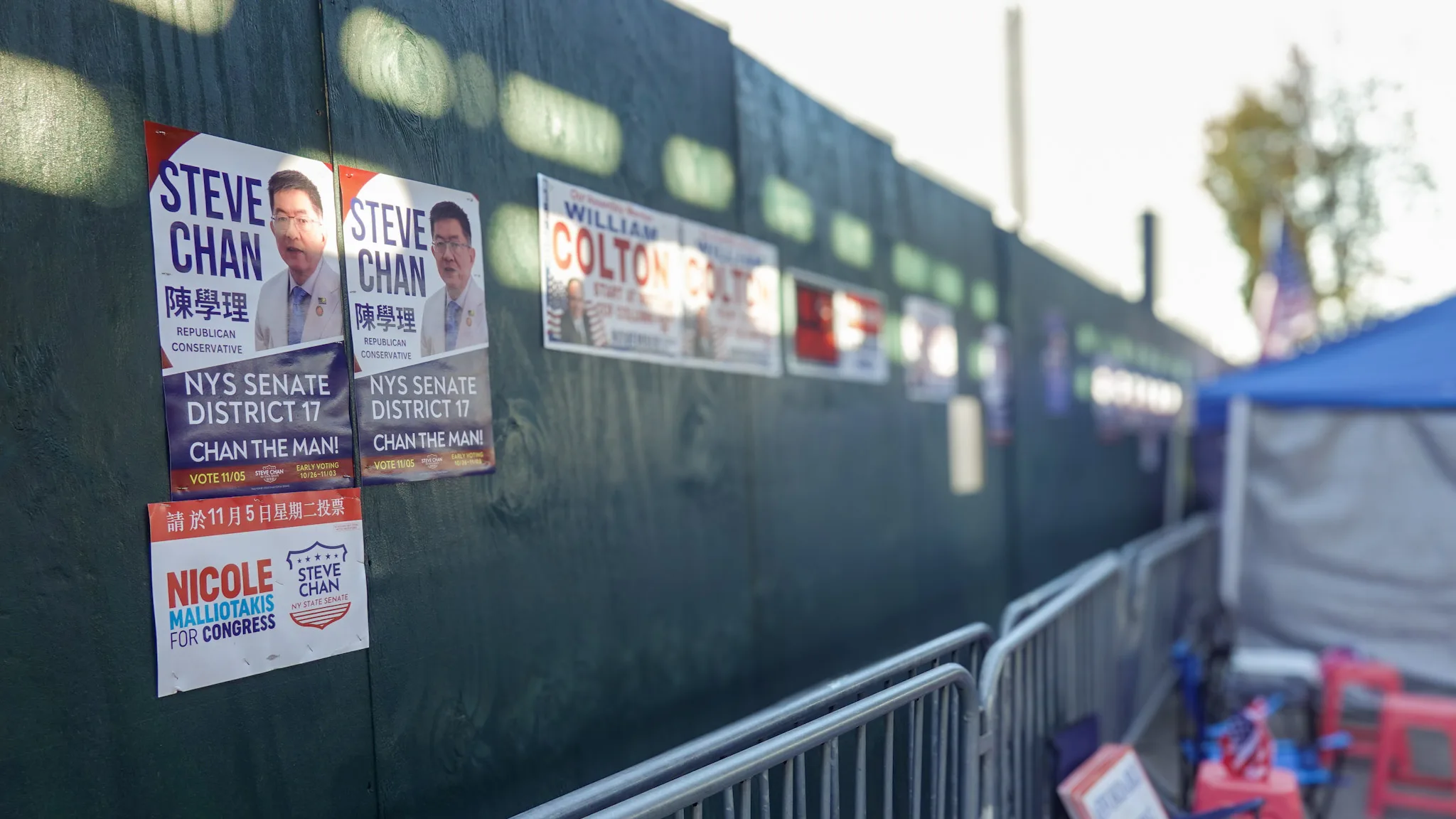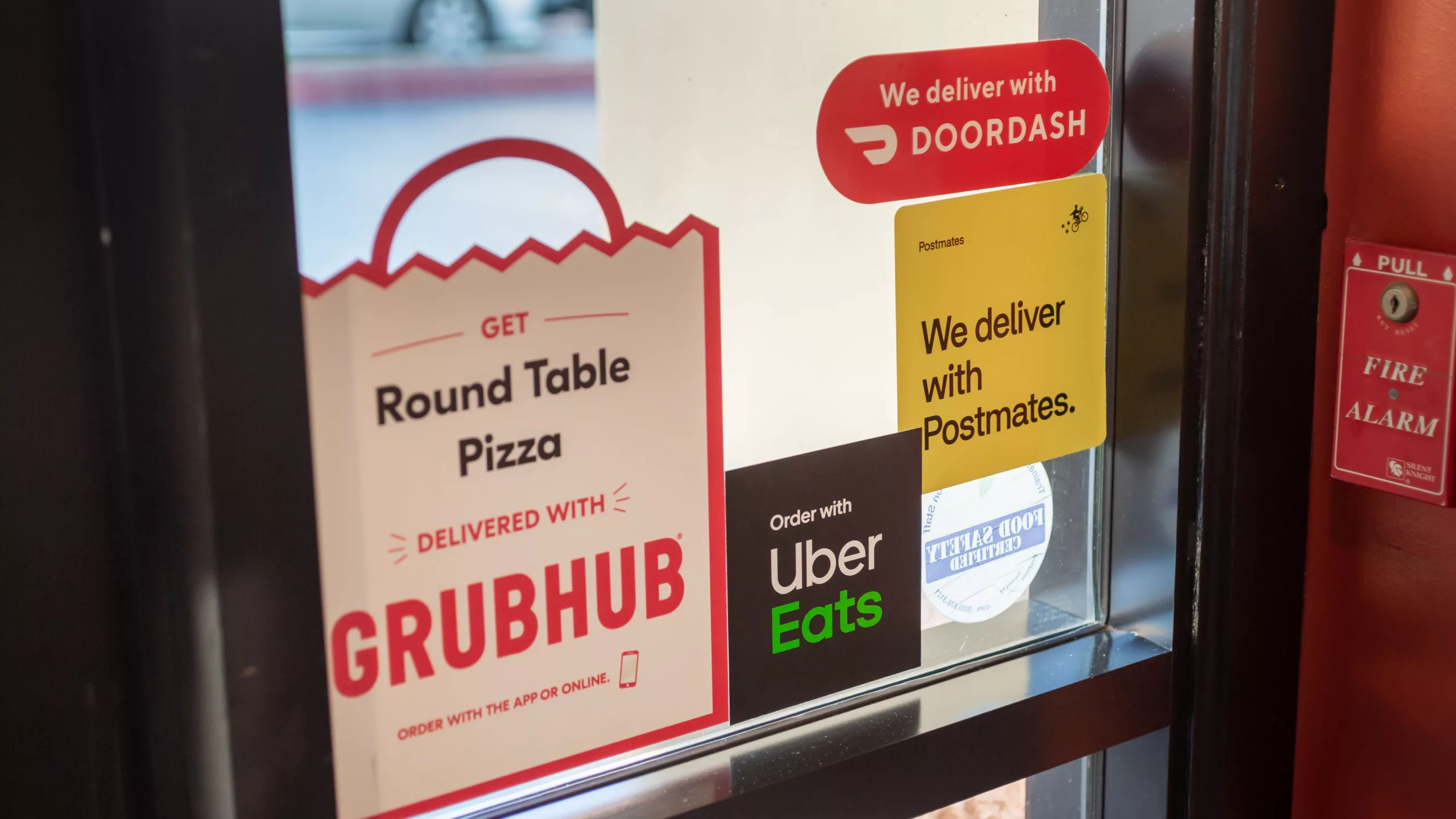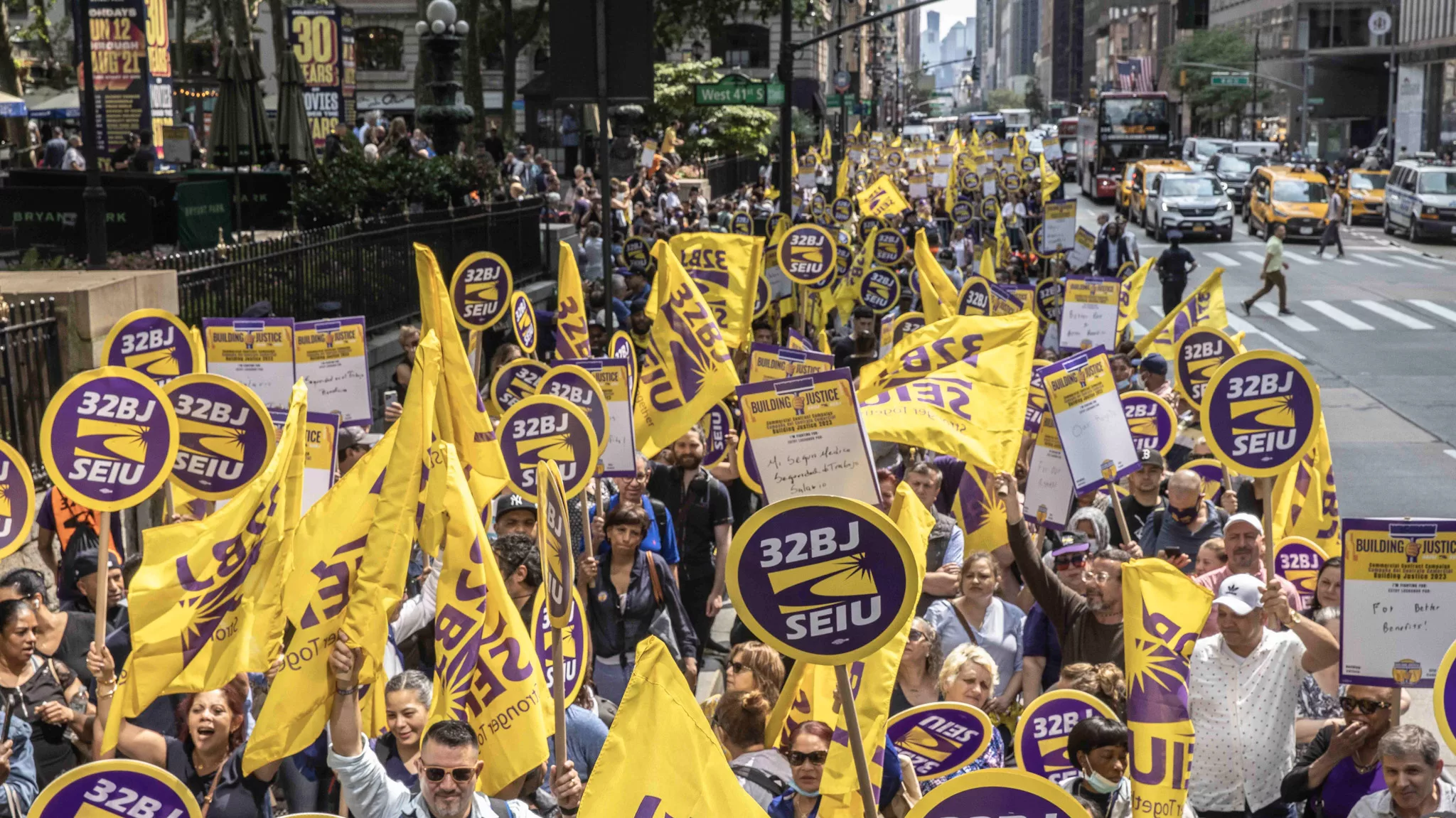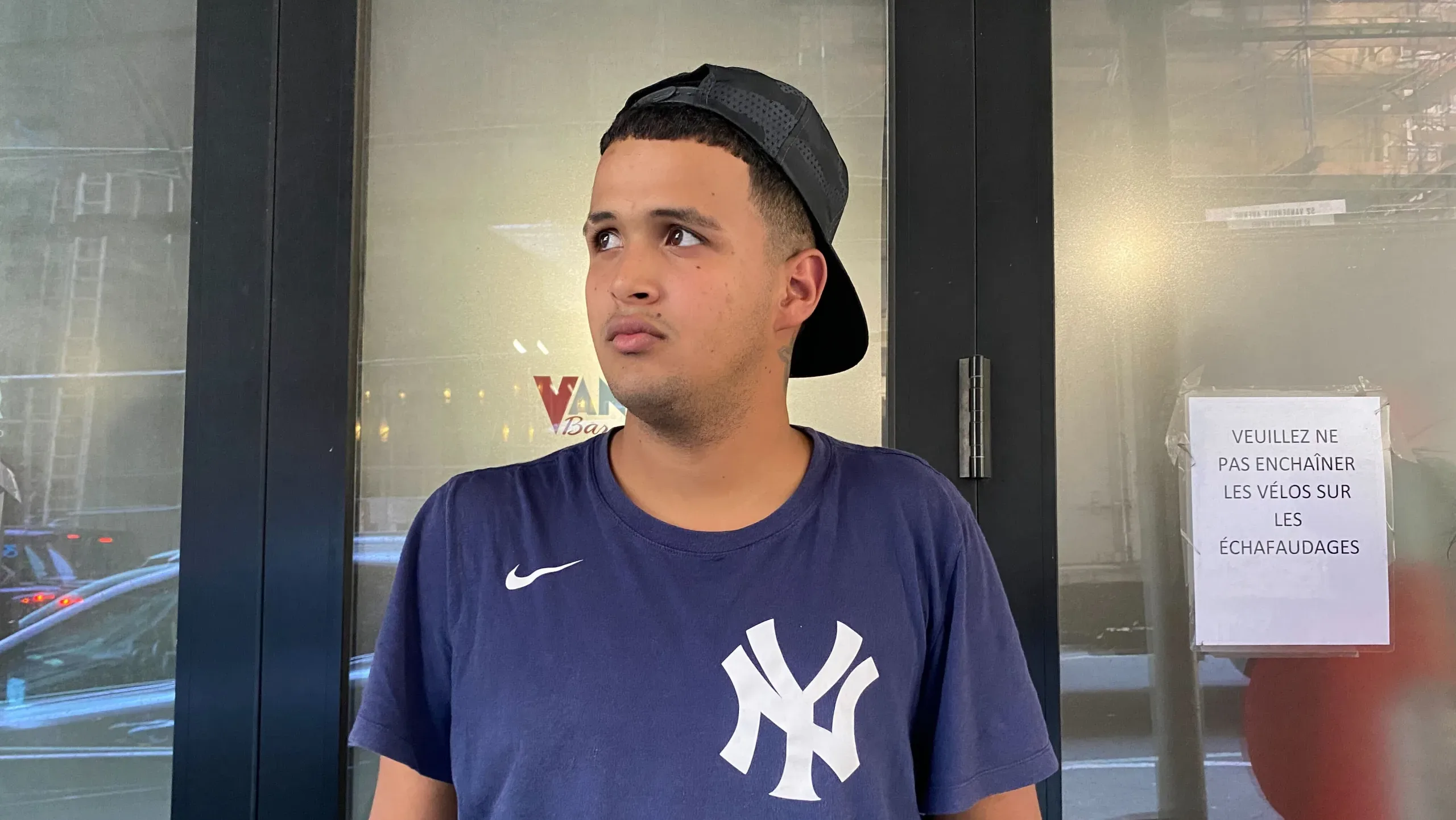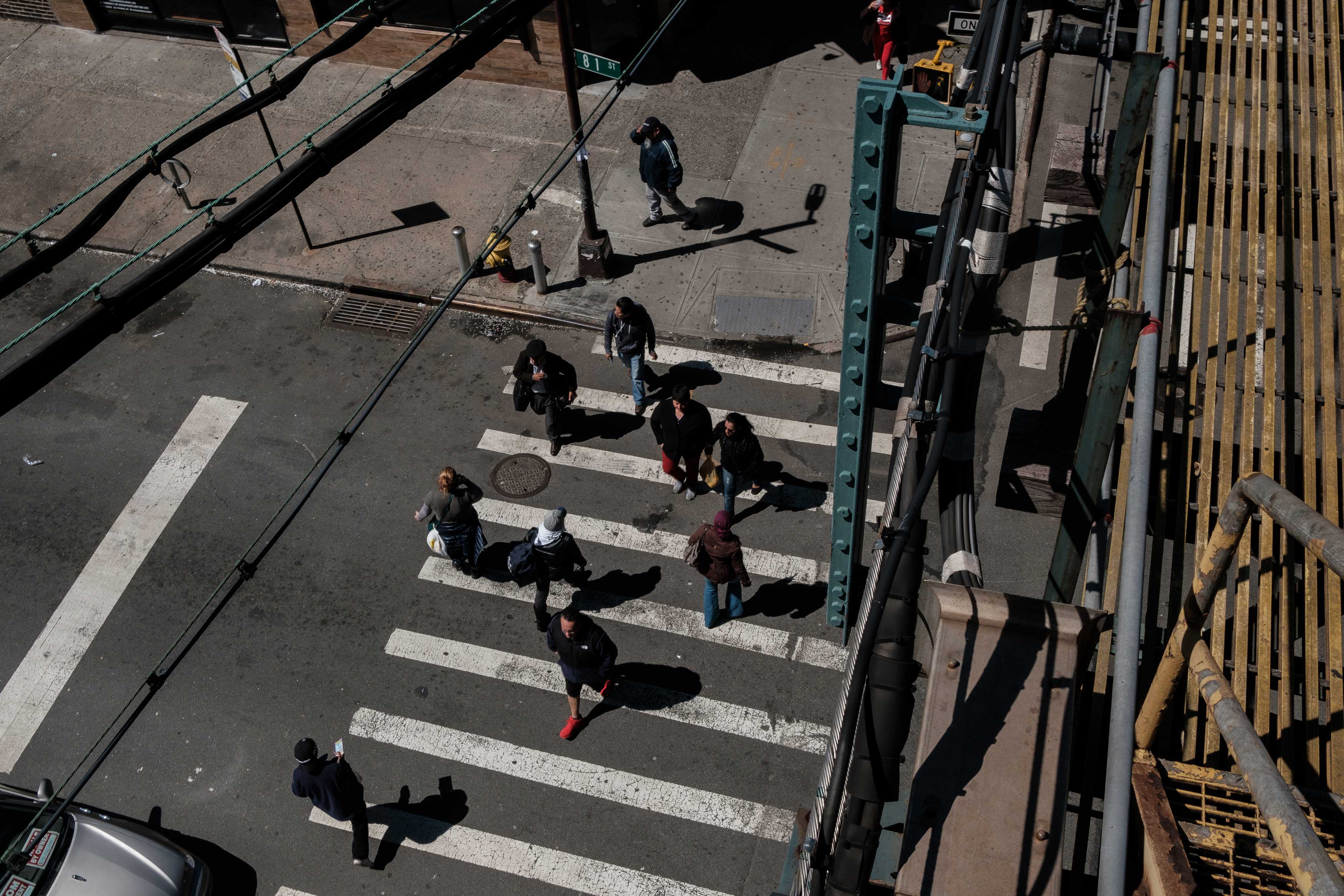In the lead up to the Republican and Democratic National Conventions, the topic of immigration was front and center. This isn’t new. In previous election years, politicians have been using immigration as a political tool in an attempt to win over voters. While Trump and Republicans say the Biden administration is too lenient when it comes to border security and enforcement, current figures from ICE beg to differ.
The Biden administration has deported more migrants from the U.S. than any previous administration. Nearly 2.5 million Title 42 expulsions occurred during Biden’s term, far greater than the number of people placed in the Remain in Mexico program under Trump. The Biden administration restarted deportation flights to Venezuela, persuaded Mexico to accept Venezuelan, Cuban, Haitian, and Nicaraguan migrants, conducted sweeps, restricted visas, increased ICE detention numbers, and returned tens of thousands of Haitians to Haiti by air.
Meanwhile, during his tenure, Trump emboldened the U.S. Immigration and Customs Enforcement agency to sweep the nation, arresting and deporting scores of undocumented immigrants. He also undid the President Obama era private prison ban, which paved the way for private corporations to grow increasingly involved in immigration detention. The Trump administration also implemented a series of orders commonly known as “the Muslim Ban” or “the travel ban.” And as a 2024 presidential candidate, Trump has pushed an agenda for mass deportation, the foundations of which have been laid out in Project 2025.
To further understand the 2024 elections and the topic of immigration, Documented gathered several immigration experts in an hour-long virtual conversation on August 24. We wanted to know: How are they thinking about this election? What are they worried about? What would a Kamala or Trump presidency mean for the United States in regards to immigration issues and policies? What have past and current government administrations failed to do in regards to the asylum process?
In addition to these, they shared their thoughts about the specifics of immigration policies (or the lack of it) shared at the Democratic and Republican National Conventions. The interview has been edited for concision and clarity.
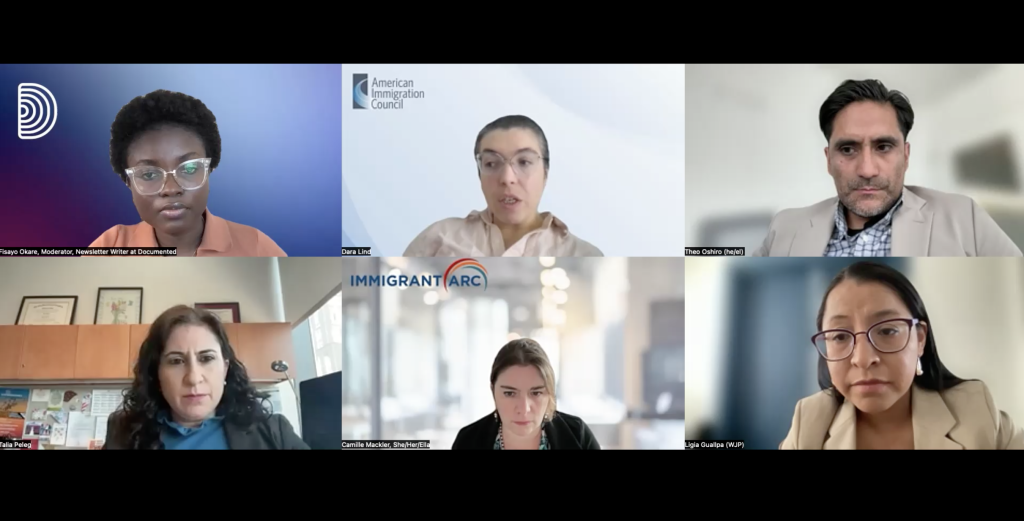
Participants:
Dara Lind: Senior Fellow at the American Immigration Council, where she works to help the public better understand immigration policy with written resources, public engagement, and guidance of colleagues’ efforts to ensure the Council’s experts have the greatest possible impact. Before joining the Council, she was one of the most trusted and respected immigration reporters in the country.
Theo Oshiro: Executive Director of Make the Road Action, where he has been a leader in improving language-access policies in the city and state, working to pass comprehensive legislation to require interpretation and translation services to limited English Proficient people in healthcare and government settings.
Talia Peleg: Associate Professor of Law and the Co-Director of the Immigrant & Non-Citizen Rights Clinic at CUNY School of Law. Her expertise and experience include Criminal-immigration law, humanitarian defenses to removal, and challenges to removability.
Camille Mackler: Founder and Executive Director of Immigrant ARC , a collaborative of over 80 legal service providers in New York State. At I-ARC, she works with community leaders, legal service providers, state and local governments, law enforcement agencies, and federal agencies and policy makers to ensure immigrants have access to a fair and efficient immigration system.
Ligia M.Guallpa: Co-founder and Executive Director of the Worker’s Justice Project and Los Deliveristas Unidos. She helps WJP win better working conditions for low-wage immigrant workers. At WJP, Guallpa has spearheaded efforts to ensure safe and dignified jobs for NYC’s 2,000 day laborers, construction workers, and domestic workers.
Can the bipartisan immigration reform bill fix America’s immigration problem?
Fisayo Okare: A few speakers at the DNC criticized Trump and Republicans for not signing the bipartisan immigration bill. While Republicans have failed to push for the bill to be passed. Democrats appear to think that it’s a panacea for all things. And my question is, can the bipartisan immigration reform bill fix America’s immigration problem?
Camille Mackler: What we’ve seen is this unfortunate trend among elected leadership to move towards solutions that implicitly accept this invasion rhetoric; the idea that immigration is problematic and dangerous when it’s ignoring a few fundamental truths and not getting to real, meaningful, realistic solutions.
The first fundamental truth, in my opinion, is that people are not going to stop moving. We are seeing more globally displaced persons today than at any other time in history. There’s a lot of reasons for that. Climate change, rise of authoritarianism, challenges to democracy, pandemic, and other factors that have really exacerbated the gap between the haves and the have nots, and all that comes with it: corruption, political instability, and we’re seeing that play out in a lot of different places in the world.
As a result of these more restrictive policies that we’ve been seeing, we’re not seeing people not come; we’re just seeing them be pushed increasingly into more dangerous pathways. They’re trying to come by sea; at the southern border recently we’ve really seen, over the last year, a real increase in southbound apprehensions between Canada and the U.S., and that’s also had some really dramatic consequences.
There’s very clear economic demographic data that shows that the U.S. economy, quite simply, needs immigration to grow and strengthen. Over the next few years, we will have an aging population, a decreasing birth rate. Economists have been really clear that without immigration, the U.S. is facing some challenging times, and that’s one set of realities. The other, of course, is that immigration apprehension is an inhumane way of treating individuals when we should be coming together as a global leader and as a global community to address what is a global issue.
Here in the United States, we know that we have the ability to absorb much higher rates of immigration. And if we saw either party or candidates or current elected leadership adopt common sense policy, that would probably help a lot of the people who are coming here seeking safety, seeking to escape poverty, seeking to create a better life. All of that would reduce the pressure of the border. It would lead to a more humane process for all. It would uphold the inherent dignity of everyone who is trying to come through the border, and that’s unfortunately what we haven’t seen.
Also Read: Waiting Decades for Asylum, Chinese Undocumented Immigrants Face a “Stateless” Reality
Instead, we’ve sort of seen these candidates and current elected leadership — at every level of government and on both sides — trying to gauge the effect within Washington, D.C. of what the impact is going to be on the political games that they’re playing. They’re not really taking into consideration what is needed to have to implement meaningful change on the ground and to implement long-lasting change.
Coming back to your question, this bill was a way for Democrats to highlight what they view as Republican hypocrisy on this issue. Yes, there were things in the bill about more resources for the border and creating better infrastructures, but fundamentally in the messaging and in certain provisions of the bill — especially around how we treat asylum seekers — they moved us further away from a place of possible, reasonable, meaningful dialogue that encompasses all of the concerns that we have.
Dara Lind: If we really are in a world where a future Democratic President or Congress is going to put this border bill on the table, it’s important to have a top-line sense of everything that was in there because it was a combination of this border trigger mechanism,which President Biden subsequently did. Biden’s recent asylum executive order is not exactly the equivalent of the Bipartisan Immigration Reform bill because you can’t do that via the executive branch. But he did a border shutdown executive order. So that part is being done to a certain extent. But in addition, the Bipartisan Immigration Reform bill would have hired thousands of asylum officers. There were provisions that would have created a quicker process, which is a bit of a double-edged sword for asylum seekers but also might have meant more asylum seekers would be working quickly. There were legalization provisions in there for some people.
And so, the weird thing about this honestly being taken by its defenders and presented as an enforcement-only bill is that for the enforcement provision, they’ve already done something akin to it. So the question is, if you bring that bill back up, do you get either the supposed political benefit of being hard on the border or whatever policy benefit you expect to accrue when it’s just putting a statutory thing on something that you’re already advertising you’ve done?
Immigrant workers and labor protections
Okare: Some speakers at the DNC highlighted how Kamala will fight for everyone, including immigrants working for the promise of America. In what ways have the current and past administrations failed immigrant workers who live and work in the U.S., and what still needs to be done?
Ligia Guallpa: I will start with the hope of making sure Kamala will focus on protecting immigrants, and that includes all immigrants and workers. I think what is hopeful is that her own immigrant story could transfer into how we address the immigration crisis that our country is facing. We have seen how previous administrations have completely failed to pass a comprehensive immigration reform.
The failure of creating a pathway for immigration reform makes millions of workers, especially undocumented workers, more vulnerable to abuse, exploitation that they’re experiencing in many industries. It makes many workers across the states and country fearful of coming forward if they’re facing or interacting with government agencies who can address labor violations in different industries.
What we’re hopeful of —and what we want to see — is a new administration that attempts to really build a more humane pathway for immigration reform that is less focused on enforcement and targeting immigrants, but more focused on offering solutions that will address the systemic issue that exists in our country that puts workers in more precarity, that puts workers in fear of coming forward when they’re experiencing labor exploitation.
Also Read: A Brooklyn Man Is Targeting Recently Arrived Migrants and Allegedly Taking Their Wages
We want to see this administration , and the future administration, really focus on stronger labor protections that specifically address immigrant workers — who continue to be the backbone of America’s economy —and also really create a pathway for workers to be uplifted. We’re talking about millions of millions of workers who not only contribute with their labor but have become taxpayers and are critical to our economy. When we lift protections from the people who are at the bottom, we’re lifting protections for all workers.
Theo Oshiro: Ligia is definitely right that labor protections are still pretty weak when it comes to undocumented workers in particular.
I want to take a step back and connect us right to what we saw in the RNC and the DNC over the last several weeks. It is absolutely true that current and past administrations have not done enough to create a pathway to citizenship and stability for immigrant communities in this country. But I want to note — and I think we saw this as evidence in the conventions — there is a vast difference between what a Trump administration did and would do and what a Harris administration would potentially do.
As we saw on the floor of the RNC, there were signs that said “Mass Deportations Now” being passed around the floor of the convention. It is not just a talking point or a sign. It is a promise, and we should take them at their word. We have seen documents like Project 2025 — which we know Trump and his backers are behind — talk about a mass deportation strategy that would mean more than 11 million people in this country are at risk of being ripped away from their families. We saw that in the first Trump administration become a reality.
In contrast, at the DNC, what we saw was actually light on specifics around immigration. Harris did say that it was possible to create an earned path to citizenship, right? Her words. But the lack of focus on immigration really shows how politically charged this issue continues to be and that Democrats have chosen to tread lightly on the issue.
We also need to look at the values that were espoused at the DNC. The theme of one of the nights was freedom. For us, that means freedom to move to safety and to opportunity. The freedom to stay in a home that’s affordable. The freedom to work in a good workplace. The freedom to thrive. The DNC made it clear how much Harris herself was impacted by her immigrant parents and her own immigrant story, which Ligia also just referenced. It’s clear that she traces her values and her roots and her work ethics to her parents’ example. So I think for many immigrant communities, it’s heartening to see someone running for president who understands, at some level, their immigrant stories and what drives immigrant communities.
I think our immigrant communities understand what’s at stake in this election and what was evidenced in the two conventions: Trump is really posing an existential threat to our communities. At Make the Road Action, we know, as a political organization, that we need to do everything in our power to stop a Trump presidency.
A Kamala Harris presidency is not an automatic win. She’s not, in essence, our savior. Advocates would really need to push her to do the right things on immigration. So at Make the Road Action, we did endorse Kamala Harris.We plan on knocking on more than a million doors in key places like Pennsylvania and Nevada.
But I want us to be clear-eyed, it will be necessary if she does win to push her to have real courage on this issue. As advocates, that’s what we’ll need to do. Push her, because honestly, under previous Democratic presidencies and administrations, we have not seen large-scale change. We’ve seen some incremental change, and then, of course, under the Trump presidency, we’ve seen existential threats to our communities.
Restrictive immigration policies are present in every U.S. government administration
Okare: Dara Lind and Talia Peleg, Theo just mentioned the dangers of Donald Trump’s mass deportation plan if elected as the 47th president of the United States. Can we address that? Also, what are the current problems with the detention and deportation of hundreds of thousands of immigrants in the U.S.?
Former President Trump has said that if elected, he’s determined to deport as many immigrants as possible. There’s also this idea that the Biden administration hasn’t taken a firm stance on migrants. But if we’ve been following reports from the Department of Homeland Security and other federal data coming out from the government, we can see that this isn’t particularly accurate about the current Biden-Harris administration.
Dara Lind: As a general rule in the 21st century, what we’ve seen is that interior enforcement — which is people who have been living in the United States being arrested, detained, deported — is constrained partly by how many people are coming into the U.S., and it’s also constrained by Congress. With the exception of the tail end of the Obama administration, those, rather than any kind of kindness or generosity on the part of a presidential administration, have been the most meaningful constraints on detention and deportation. Also, to a certain extent, the COVID pandemic was another kind of external constraint on this.
The question about how seriously you take any proposal to expand the use of detention and deportation, or for that matter,conversely,how much one could expect a more dovish president to really rein that in? It is largely a question of how far are they willing to go with the resources they have and how hard are they willing to push Congress.
Mass deportation — in the sense of whether it’s a round-up campaign of everybody at once or whether it’s what they’ve started saying more recently, which is like 1 million people a year — is such a massive increase from what we have. You’d need really extraordinary resources and an attitude toward law, and toward getting things done. That is,let us say,radically different from what we’ve seen, which is why you have these kinds of proposals being floated, for example, using the National Guard to help arrest and build these open-air detention camps, etc.
I think Theo is absolutely correct that mass deportation has taken the role in this campaign like Build the Wall did in 2016. As President, Trump really did go above and beyond what Congress allowed him to do to put funds there.
The fundamental question is going to be, how much do you care about the rule of law if you have an administration that has promised to do that? That is a very open question. Frankly, those of us who would be trying to resist any efforts at mass deportation, trying to ensure that immigrants have protections, and trying to figure out what’s going on, the more disregard is shown for proper due process and for transparency, the harder it’s going to be for us to fight it. That is what I’m really worried about right now.
Talia Peleg: I just wanted to start with your second question. The current state of detention and deportation, especially under a Democratic presidency.
Like my co-panelists have said, the Harris campaign has been very light on specifics. So, to the extent she has said she wants to continue some of the Biden policies, I think it’s important to look at what President Biden has done and is doing to answer the question of detention.
There are currently 36,000 people in immigration detention throughout the country, many of whom are held in private immigration facilities. It is really important to emphasize when Biden ran for presidency, and when Kamala was a vice presidential candidate, they both really ran on this idea of closing private immigration detention.
The profiting off the backs of the suffering of immigrants, every candidate, I think in the debate on the Democratic side, I don’t remember exactly, really advocated against this. What we’ve actually seen is the expansion of private immigration detention by Trump, but those contracts have been kept by the Biden administration.
There’s been internal reports by ICE itself, by internal watchdogs within the government, documenting the horrific abuses that we all know, and as advocates and others have studied, that go on within these private immigration detentions. Sexual abuse, deaths, the use of solitary confinement. These are really punitive places. Just to be really clear, under immigration law, detention is not meant to be used for punishment. In fact, it’s very much prohibited to use detention, but we have gotten so used to it. We’ve seen Democratic administrations, with Obama and others, really use this idea of jailing immigrants, and we’ve seen that in other areas in the criminal legal system. Using incarceration has become normalized.
There’s 36,000 people in these facilities today that have been documented as very dangerous places. My students and I represent people in these locations — the health risks, all of this, has really been documented. There’s really been no effort to reduce this, despite campaign promises.
If anything, what we’re seeing happen at the border is increase in detention, increase of contracts, whether through private corporations or through partnerships with local, essentially, jails that are housing immigrants. That’s within the interior of the United States. People really need to understand that this is what is perpetuated by Democratic administrations as well as Republican administrations.
In terms of deportation, to echo what my co-panelists have said, I just saw a study that Biden is set to deport as many people as the Trump administration did. So, we are seeing that the sheer numbers are very similar. We really are dealing with a reality that’s very dangerous today in the United States, that’s very threatening to immigrant communities and to all of us, frankly.
Those of us living here in New York City, we see every single day we live in a city where the contributions of immigrants are felt, from raising our children to growing our food to running our entire city and our operation. Yet the narrative that’s being perpetrated is a completely different reality than what we actually live. I really appreciate Camille’s point that it’s disappointing to watch the conventions from my perspective and see a response to this narrative of [the U.S.] being overtaken, as though immigrants are dangerous, when that’s not in line with the reality that we live each and every day throughout the country where immigrant labor contributions are being felt.
To the point about this sort of threat of mass deportation by the Trump administration — and I really do agree with with my co-panelists here — the proof is President Trump did things like expanding the possibility of expedited removal, and really wants to do that, and has said so, which would basically mean that people within the interior could be deported without having the right to see a judge, where an officer could make that determination, with very little right to appeal, very little due process, really expanding that.
Obviously, Trump very much supported running immigration courts in Mexico through the MPP program and other things. There’s been a lot of litigation around this, but this sort of ripping away due process and threatening now to make arrests anywhere and everywhere, including churches and schools, which at least now under the current administration are deemed to be secure locations where ICE is encouraged not to make arrests, although, again, not always held to. We know that Trump plans to, if anything, expand what he’s already done. That’s deeply terrifying for the reasons that others said.
Immigration solutions for the next government administration and what stands in the way
Okare: I’d like to quickly go back to Camille to begin discussions for the last question. What should the next government administration be looking to resolve when it comes to immigration issues and policies? What stands in the way given all that we’ve brought up in this conversation today?
Camille Mackler: To answer the second question, what’s lacking is political courage. This is a really difficult topic. It’s very complex. It’s easy to stoke the politics of fear, and that’s what we’ve seen in a lot of places. It is just going to take a lot of political courage to do what’s right.
There are a lot of common sense measures that can be taken that would allow the United States to fully benefit from immigration and immigrants, while also not completely sliding down a path of treating people inhumanely, attacking their basic dignity through really terrifying conditions, and relying on very scary organizations to even get here in the first place.
I’m an immigration attorney. You’ll hear me say it a million times. I would love nothing more than to put myself out of a job. You shouldn’t need a lawyer to seek safety, to unite with a family member, to pursue a job opportunity, and again, I’m happy to go find a new career, if that is the case.
Secondly, we really need to look to our elected leadership to cool down the rhetoric. I think that’s actually been a really interesting dynamic. Over the last few weeks, what we’ve seen is sort of a very stark difference in tone. We’ve all read the headlines. I can’t underscore enough what Theo was saying earlier, which is the fear that a Trump administration will cause, just the very desperate reactions that it will provoke just because of what is happening, which we saw during his first tenure. This second time around, they would know even more, even better, how to implement their policies.
The lack of humanity, the terrifying language that gets used, spirals. Finding a way to get everyday Americans to understand what is immigration, what is really happening, why this is not necessarily a bad thing, why this is not an invasion? We’re at a place where with this sort of 24-hour news cycle, social media news cycle, people don’t really read news stories; they read headlines.
People maybe listen to a podcast while they’re on their way somewhere. How do we capture the interest and then make this topic accessible and especially less scary? That will also be another really big challenge. This is a system that has been broken for a very long time, that has been subject to pressure, and has just been cracking and cracking and cracking. We’re not going to fix it overnight, but let’s have a goal. Let’s have a long-term plan, and let’s build towards it and not get distracted by people who want to stoke fear, who want to capitalize on instinctive reactions, but instead know that we are moving towards a better solution. It’s just going to take a little bit of time.
Dara Lind: Those of us who were following this in 2017, we’re facing the prospect of a return to so many cases of parents being afraid to let their children out of the house because they were worried about an ICE raid.
On the other hand, even in the absence of that, the threat of it, and the fact that a lot of these people have some form of temporary protections, whether it’s that they were paroled into the U.S., whether it’s that they have Temporary Protected Status, or DACA. They’ve been living on borrowed time for a really long time, and that can be taken away from them. But there isn’t an equivalent. They can’t move forward from there.
What happens to the people who have some form of protection and how are they allowed to go about their lives? That is the most important question. Are we stripping them of the few protections they have? Is that okay? Are we going to keep them on this treadmill, or are we going to actually allow them to start walking forward?
Camille Mackler: Something that’s important to note is also the immense amount of burnout in the field of organizations and places that are trying to meet the need. We talk about hiring more asylum officers, but USCIS, which once had one of the highest employee morale levels of any federal agency, now has one of the lowest. They can’t get asylum officers to go on details. They have to force people to go.
On our side, I mean, I obviously represent lawyers who work in this field, the exhaustion of constantly having to fight for what seems just so basic and natural, and then, of course, none of that compares to what you’re going through when it’s your family, when it’s your home, when it’s your community. I know we saw that a lot with DACA recipients in the early days of Trump. But that’s really the tip of that iceberg. The tone that the rhetoric sets also has a trickle down effect.
Theo Oshiro: The Parole in Place policy came on the heels of the pretty punitive asylum seeker policy that was put in place by the Biden administration, which advocates and community members did a lot to push back against and be very vocal in opposition to.
Years of organizing also led to what became a friendlier and more positive policy in the Parole in Place policy. Today, there was a lawsuit filed by Texas and 15 other states to challenge this policy. We’ll see if there’s a pause put on the policy. So, you can imagine, as advocates, but more importantly, community members who would have benefited from this policy, what the feeling is like to achieve a victory and believe that you might now have a new route to citizenship that you didn’t have before, only to have that challenged, and what that does really to the psyche of our community members who are fighting so hard to achieve those victories. It goes to the question of what’s in the way.
Immigration as an issue has been extremely polarized. I agree totally that there’s been a dearth of courage and political leadership because I believe that most Americans actually agree that there should be fair and common sense pathways to citizenship. But what we see instead is the fear mongering not only by mostly Republicans, but also on the Democratic front, using the same talking points and often appeasing Republicans via policies that we actually know won’t work to really provide stability for immigrant families.
So there is that big obstacle of tepid leadership with not much courage on an issue that is extremely complex and polarizing.
Ligia Guallpa: Communities have a lot of power to define our future. Defining that future starts with electing officials and leaders whose values are aligned with others. This is an important moment where communities should define who is the next president whose values are aligned with our family values, with our community values. But it doesn’t end there. Administrations have failed to address key issues, especially passing a fair, humane, and comprehensive and inclusive immigration reform, not only because of the lack of will, but because the whole system is so broken to the point that it’s not just about electing officials who’s willing to do it. But we need to demand through organizing to do it.
Our fight for fair immigration reform, more protections, doesn’t end with electing the next president whose values are aligned with ours. It ends when we actually win what we all deserve, which is the ability to work with dignity, being able to live safely in our communities, but also being able to access a more dignified life.
Talia Peleg: There’s a real opportunity here. In watching and taking in the DNC over the last several days, there was a sort of hopeful messaging that hasn’t really existed. We saw that around things like voting rights, housing, and certain issues.
There was sort of, at the beginning, trying to reframe the narrative. There’s still a lot of responding to Trump. I would have [preferred to] see a lot more of like, what are you bringing to the table? But similar to what we’ve seen with the voting rights, and other issues coming forward, I hope Harris’ candidacy will really bring forward specifics on the hopeful vision of immigration and explain what is actually going on the ground. What is asylum? Asylum is a protection for someone who’s being persecuted on account of their religion, race, or national origin. It’s a very narrow form of protection, and we’re signatories to an international convention because this is so important and foundational to who we are as a country. People are coming here to seek protection, and that’s what needs to be emphasized. People have the right to seek protection.
The current system as it is, asylum officers are under-resourced. The immigration courts are completely understaffed, and frankly, immigration court has been equated, and has been called the kangaroo court, for very good reason, as someone who practices there. There’s very little rules of evidence. The system is completely not just broken, but designed in a way that sustains deportation and fuels people not being permitted to stay in the country. We really need a framing of immigration and these laws of what they are and what they’re there to protect, and why people are coming here.
The sense that people come and it’s so easy and asylum is being given out like candy, that is so far from the truth. As someone who’s litigating in the courts, it’s so difficult to actually win asylum. There’s really a positive narrative and also a realistic narrative that’s completely missing, and there’s a real opportunity for this election to actually be truthful about what is going on.
I agree with Theo and Ligia about who Harris is aligning herself with to create immigration policy. Actually working with immigrant communities who should be designing these policies. It’s not just her personal story. It’s living and embodying: what did it mean to be raised by immigrants? What did it mean for her parents to come to this country, be educated here, and then she was able to become the attorney general and then be vice president. But in a real, tangible way, and in a meaningful way. That sort of opportunity is something that is not just for her, it’s for others as well, as we see as immigrants continue to come and will continue to come. There’s a real question for us as a country: How do we want to receive these community members and who do we want in our leadership?
